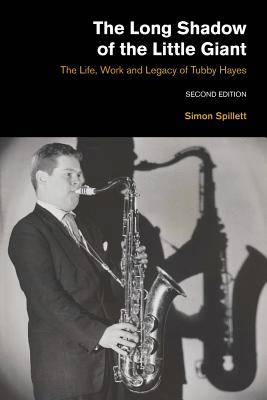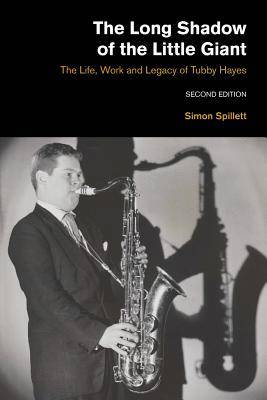
- Afhalen na 1 uur in een winkel met voorraad
- Gratis thuislevering in België vanaf € 30
- Ruim aanbod met 7 miljoen producten
- Afhalen na 1 uur in een winkel met voorraad
- Gratis thuislevering in België vanaf € 30
- Ruim aanbod met 7 miljoen producten
Zoeken
The Long Shadow of the Little Giant
The Life, Work and Legacy of Tubby Hayes (Second Edition)
Simon Spillett
€ 58,45
+ 116 punten
Uitvoering
Omschrijving
Over forty years have elapsed since the death of the British jazz legend Tubby Hayes and yet his story still continues to captivate. Beginning as a precociously talented teenage saxophonist, he took first the local and then the international jazz scene by storm, displaying gifts equal to the finest American jazzmen. He appeared with none other than Duke Ellington and proved almost single-handedly that British jazz need not labour under an inferiority complex. Hayes's triumphs during the 1950s and 60s enabled still later generations of English musicians to take their music onto the world stage. However, his story, distorted by the folklore surrounding his tragically early death, aged only 38, has rarely been accurately recorded. Much of what has been written, broadcast and recounted about Hayes has added only confusion to our understanding of his short but brilliant life. In this new, expanded paperback edition, award-winning saxophonist and writer Simon Spillett, widely regarded as the world's leading authority on Hayes and his work, painstakingly outlines a career that alternated professional success and personal downfall. Using credible eye-witness recollection, drawn from conversations with Hayes's family, partners, friends and musical colleagues, unique access to Hayes's own tape, photographic and personal archives - including papers that have only recently come to light - and extensive contemporary research material, Spillett has reconstructed the trajectory of his subject's life both candidly and respectfully.
Specificaties
Betrokkenen
- Auteur(s):
- Uitgeverij:
Inhoud
- Aantal bladzijden:
- 420
- Taal:
- Engels
- Reeks:
Eigenschappen
- Productcode (EAN):
- 9781781795057
- Verschijningsdatum:
- 17/07/2017
- Uitvoering:
- Paperback
- Formaat:
- Trade paperback (VS)
- Afmetingen:
- 157 mm x 231 mm
- Gewicht:
- 703 g

Alleen bij Standaard Boekhandel
+ 116 punten op je klantenkaart van Standaard Boekhandel
Beoordelingen
We publiceren alleen reviews die voldoen aan de voorwaarden voor reviews. Bekijk onze voorwaarden voor reviews.








